| Article ID | Journal | Published Year | Pages | File Type |
|---|---|---|---|---|
| 2010717 | Pharmacological Reports | 2012 | 11 Pages |
BackgroundThe aim of the study was to examine effects of an acute and chronic treatment with trazodone, a serotonin antagonist and reuptake inhibitor (SARI), on the protective activity of four classical antiepileptic drugs provided in the maximal electroshock test in mice.MethodsElectroconvulsions were produced in mice by means of an alternating current (50 Hz, 25 mA, 0.2 s) and delivered via earclip electrodes. Motor impairment in animals were assessed in the chimney test, and long-term memory deficits were quantified in the passive-avoidance task. Brain concentrations of antiepileptic drugs were analyzed by fluorescence polarization immunoassay.ResultsThe obtained results showed that a single administration of trazodone (up to 40 mg/kg) did not influence the electroconvulsive threshold. In contrast, chronic treatment with the antidepressant (40 mg/kg) significantly increased this parameter. Furthermore, both single and chronic administration of trazodone reduced the anticonvulsant effect of phenytoin and carbamazepine against the maximal electroshock. However, the antidepressant remained without effect on the anticonvulsant action of valproate and phenobarbital. Some interactions between trazodone and antiepileptic drugs may have a pharmacodynamic background. Both, acute and chronic treatment with the antidepressant diminished the brain concentration of phenytoin. Chronic trazodone lowered the brain levels of carbamazepine and phenobarbital. Moreover, acute and chronic trazodone increased the valproate concentration in the brain. As regards undesired effects, acute and chronic trazodone (40 mg/kg), alone and in combination with phenytoin, significantly impaired long-term memory in tested animals, evaluated in the passive avoidance task. Acute trazodone (40 mg/kg) alone and combined with phenytoin produced also significant motor deficits in mice, as measured in the chimney test.ConclusionThe obtained results allow to conclude that trazodone is not a good candidate for an antidepressant drug in epileptic patients.
